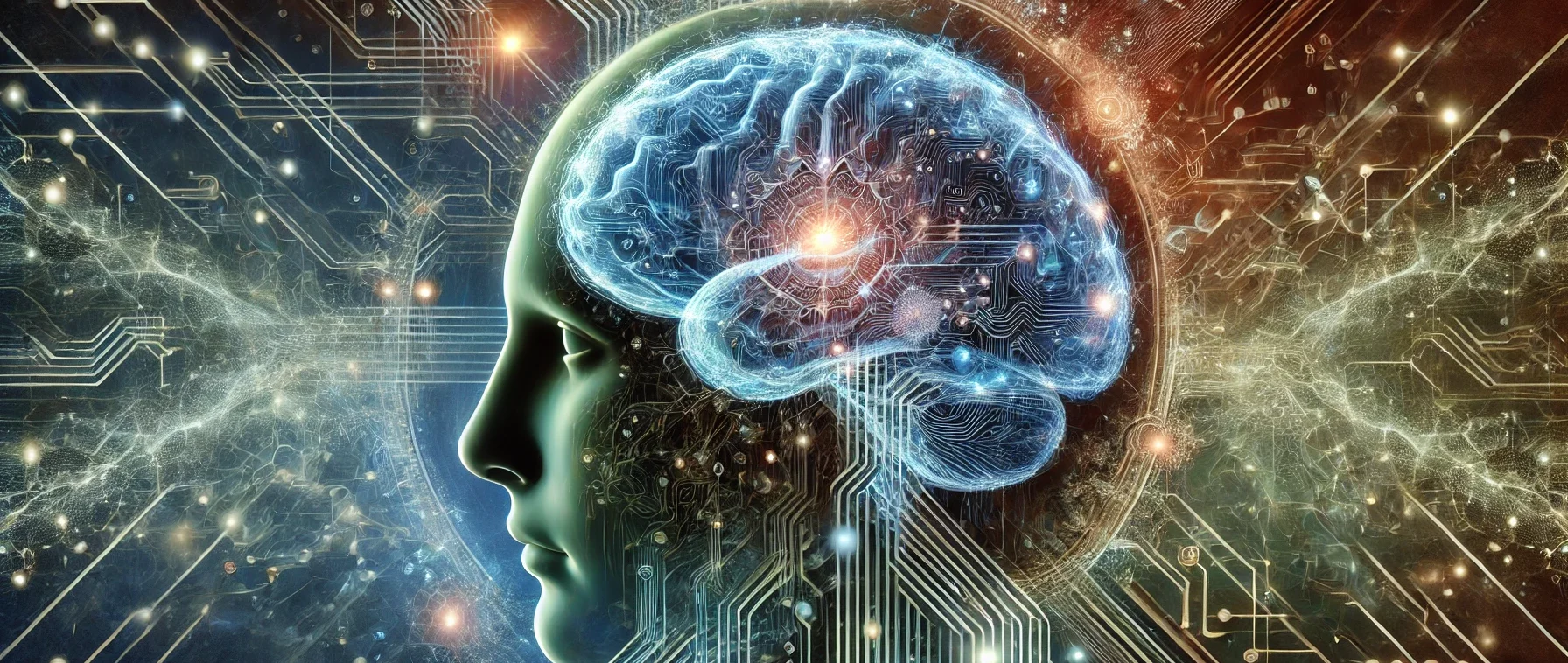Protecting human thoughts in the age of AI: SCIoI PI John-Dylan Haynes on German TV broadcaster 3Sat
The rapid advancements in neuroscience and artificial intelligence are blurring the boundaries between human cognition and machine interaction, leading to groundbreaking but ethically complex possibilities. In a recent episode of “Scobel: Brain-Hacks – Wer schützt unsere Gedanken?” („Scobel: Brain-Hacks – Who protects our thoughts?“), experts, including Science of Intelligence (SCIoI) PI John-Dylan Haynes, explored the profound implications of technologies that can translate brain signals into speech or manipulate cognitive processes for therapeutic purposes. As these innovations move from science fiction to reality, urgent questions arise about the ownership and protection of our thoughts.
“Scobel” is a weekly television program broadcast on 3Sat, hosted by Gert Scobel, a prominent German philosopher and journalist. The show, which has been airing since 2008, is known for its deep dives into a wide range of topics, including science, philosophy, culture, and social issues. The format of the show is designed to encourage critical thinking and reflection, with episodes focusing on contemporary issues such as digitalization, the impact of artificial intelligence, health care reform, and the boundaries of human empathy. Each show features expert guests, who discuss the chosen subject in depth, often linking it to broader societal questions.
SCIoI member John-Dylan Haynes from Charité – Universitätsmedizin Berlin joined the “Scobel” episode on Brain-Hacks, where he discussed the rapidly advancing field of neuroscience and artificial intelligence (AI), particularly the intricate and potentially transformative connections that are being forged between the and computer systems. As these technologies evolve, they bring forth both remarkable possibilities and significant ethical dilemmas.
Bridging brain and machine
The episode explores the coupling of the brain with machines. As utopian as this may have sounded just a few decades ago, it is increasingly becoming a realistic concept for computers to interact with the human brain. This connection is not merely theoretical, it holds practical applications that could dramatically improve the quality of life for individuals with neurological conditions. For example, the technology could enable the direct translation of brain signals into speech, offering a new communication channel for stroke patients who have lost their ability to speak. This kind of brain-machine interface could revolutionize how we understand and treat neurodegenerative diseases like Parkinson’s and Alzheimer’s.
The potential of these interfaces goes beyond medical applications. As the episode discusses, the possibility of a brain interacting directly with a computer opens up a new realm of possibilities, where thoughts could potentially be decoded and used to control external devices or even communicate in new ways. This blending of human cognition with artificial systems could lead to groundbreaking innovations, but it also raises profound ethical concerns.
The role of artificial intelligence
Another layer of complexity is introduced with the role of AI systems that can process information derived from human brain activity. These AI systems are capable of analyzing and interpreting data, such as text or images created by the human mind, and then generating similar outputs.
However, the convergence of AI and neuroscience is not without its challenges. The experts emphasize that while these technologies hold great promise, they also pose significant risks, especially regarding privacy and autonomy. As machines become more capable of reading and interpreting our thoughts, questions arise about who controls this information and how it is used. The potential for misuse or unauthorized access to one’s innermost thoughts is a real concern that society must address as these technologies continue to develop.
Ethical considerations and future prospects
The ethical questions raised by these advancements are a major focus of the episode. The idea that computers could one day interact directly with our brains, gradually appears to be feasible. This shift from fantasy to reality necessitates a careful consideration of the ethical frameworks that will govern the use of such powerful technologies.
There is no simple answer to these developments. As innovations continue to unfold, it will be essential for scientists, ethicists, and policymakers to collaborate in creating safeguards that protect individual autonomy and privacy while allowing the benefits of these technologies to be realized.
John-Dylan Haynes is an expert in neuroimaging. He was an early pioneer in the field of brain-reading, which aims to “read out” people’s thoughts from brain scans using AI techniques. John has been an outspoken critic of overblown claims of lie-detection and neuromarketing in his field. He has also been a vocal advocate of ethical guidelines when AI technology is used in brain research and neuroprediction. In line with this, he also coordinates the AI ethics platform at SCIoI. In his other lines of research, he has worked on the brain mechanisms of free will and responsibility, topics that also have important implications for AI technology.





